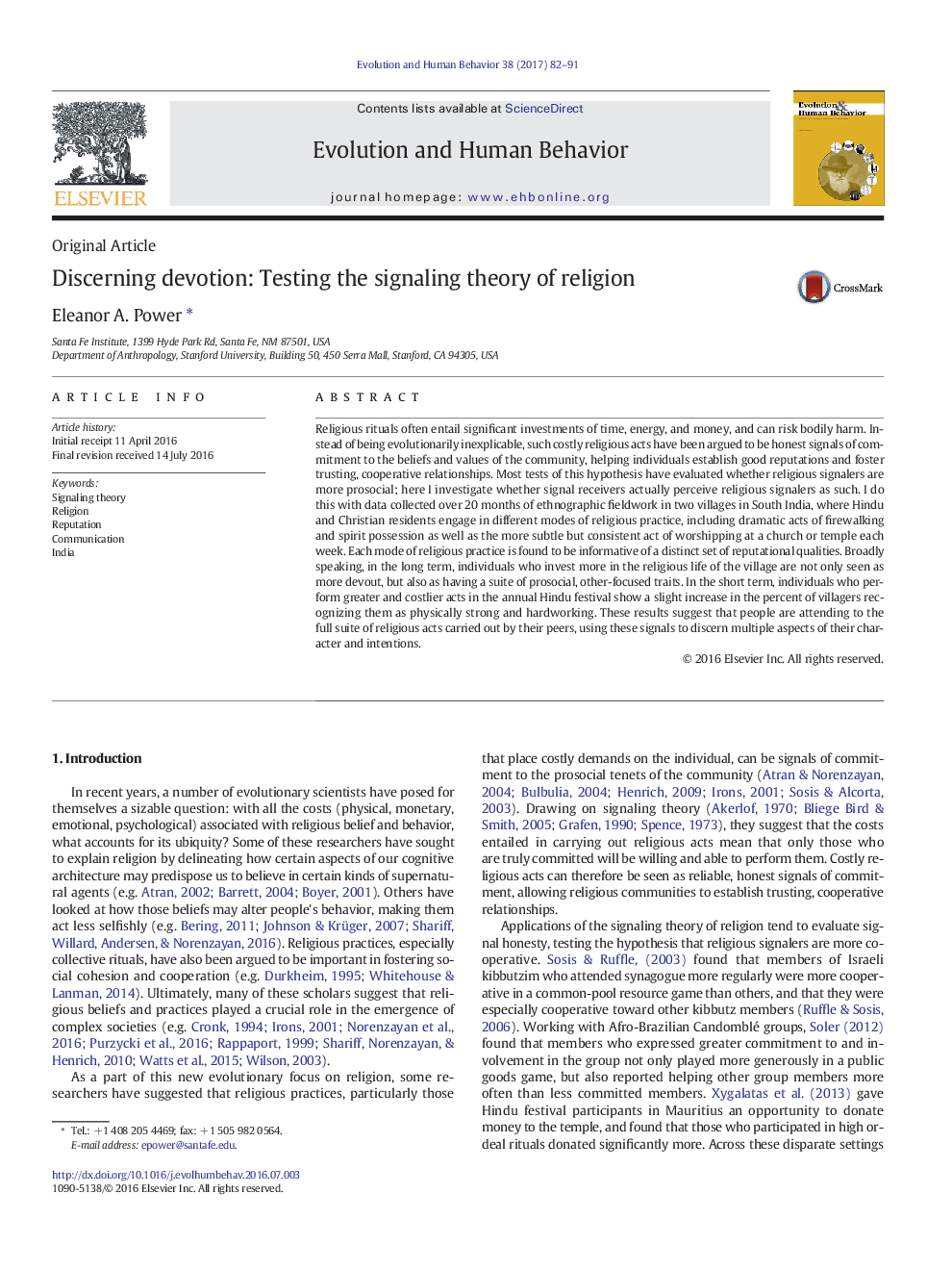ترجمه فارسی عنوان مقاله
عزت نفس: تست نظریه سیگنالینگ دین
عنوان انگلیسی
Discerning devotion: Testing the signaling theory of religion
| کد مقاله | سال انتشار | تعداد صفحات مقاله انگلیسی |
|---|---|---|
| 108944 | 2017 | 10 صفحه PDF |
منبع

Publisher : Elsevier - Science Direct (الزویر - ساینس دایرکت)
Journal : Evolution and Human Behavior, Volume 38, Issue 1, January 2017, Pages 82-91
ترجمه کلمات کلیدی
نظریه سیگنالینگ، دین، شهرت، ارتباطات، هند،
کلمات کلیدی انگلیسی
Signaling theory; Religion; Reputation; Communication; India;
ترجمه چکیده
آیین های مذهبی اغلب به سرمایه گذاری قابل توجهی از زمان، انرژی و پول کمک می کنند و می توانند به صدمه زدن به بدن آسیب برسانند. به جای آنکه به لحاظ تکاملی غیر قابل توضیح باشد، چنین اعمال مذهبی پر ارزش، استدلال شده است که می تواند نشانه صادقانه از تعهد به اعتقادات و ارزش های جامعه، کمک به افراد ایجاد شهرت خوب و ایجاد اعتماد، روابط همکاری باشد. اکثر تست های این فرضیه، ارزیابی کرده اند که آیا متقاضیان مذهبی بیشتر مشغول هستند یا خیر؟ در اینجا من بررسی می کنم که آیا گیرنده های سیگنال در واقع سلسلقات مذهبی را درک می کنند. من این کار را با داده هایی که بیش از 20 ماه از کارهای میدانی در دو روستای جنوب هند انجام داده ام، که در آن هندو و مسیحیان در شیوه های گوناگون مذهبی مشغول به کار هستند، از جمله اعمال جادویی و غافلگیری روحانی، هر هفته در کلیسا یا معبد پرستش کنید هر نوع روحیه مذهبی براساس یک مجموعه متمایز از ویژگیهای شناختی شناخته شده است. به طور کلی، در درازمدت، افرادی که بیشتر در زندگی مذهبی دهکده سرمایه گذاری می کنند، نه تنها به عنوان خدایی بیشتر دیده می شوند، بلکه دارای مجموعه ای از ویژگی های متمایز و متمرکز هستند. در کوتاه مدت، افرادی که اعمال جزییات بیشتری و هزینه ای را در جشنواره هندوستان انجام می دهند، درصد کمی از روستاییان را به عنوان جسمی قوی و دشوار به حساب می آورند. این نتایج نشان می دهد که مردم به مجموعه ای کامل از اعمال مذهبی که توسط همسالانشان انجام شده اند، با استفاده از این سیگنال ها برای تشخیص جنبه های متعدد شخصیت و اهداف خود هستند.

